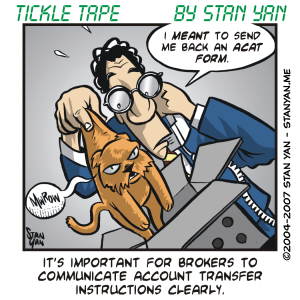In this cutthroat world we live in, we often follow the motto, “The ends justify the means.” Blind ambition, self-sacrifice, and extreme self-control are valued. If you can work tirelessly, wait long enough, and quickly recover from endless setbacks, you’ll be one of the select few who survives and reap the rewards. It’s true in many walks of life and it’s true in the competitive world of trading. Trading is difficult. Of the many that try, few realize enduring success.
To be successful as a trader, you must be willing to do whatever it takes, no matter how exasperating. The risks and sacrifices are many. You may not be able to spend as much time with your family as you prefer. You might have to work extra jobs to build up capital and pay for trading expenses. It is often necessary to focus exclusively on trading. You can’t be wishy-washy. Only the persistent and dedicated will survive. But in the final analysis, you must ask yourself if the ends justify the means.
It’s possible to make huge profits in trading. The difficulty is surviving. Many of the “Market Wizards” from the 1980s, for example, aren’t in the business today. You can be at the top of your game one year, and looking for a new profession the next. Survival is important. What’s the sense of reaching the status of a master trader if you just burn out after a year? It’s an unpleasant truth. Few achieve lasting success, and of those that do, many traders burn out. The stress is enormous.
Your money and ego are often on the line. When you aren’t trying to learn new trading methods, you may spend your leisure time trying not to worry whether or not the market will go against you on the next trading day. Even while you relax with friends, you may worry about the markets in the back of your mind. It’s hard to make it as a trader. It’s vital that you find a way to avoid joining the club of burned-out traders.
How can you avoid burn out? First, minimize stress as much as possible, and try to effectively cope with significant stressful events. Don’t pretend that you don’t have stress. Trading is inherently stressful, but many deny stress rather than actively cope with it. But passively ignoring stress can accentuate the impact of stress rather than relieve it. It’s better to acknowledge you are taking risks and that outcomes of your trades are uncertain. If you acknowledge the risk upfront and minimize it through risk management, you’ll feel more relaxed. Second, it is essential to focus on the inherently rewarding aspects of trading.
If you don’t love what you’re doing, you won’t last very long. Trading is inherently rewarding. It’s intellectually challenging. It’s fun to test personal hypotheses about the markets and see if your hypotheses are supported. Sometimes it’s easy to forget this fact, especially during a drawdown, but trading is fun, and it’s better to enjoy it than view it as a burden. Third, cultivate a sense of balance between work and personal life. It’s necessary to focus all your available time to devising new trading methods. Becoming a master trader and staying there requires a large time commitment, and it may be difficult to balance work and leisure time. But it is important to spend time with friends and loved ones.
It may be difficult to divide your time equally between your work and personal life, but you must devote some time to feel connected to other people. Fourth, it’s important to find personal meaning. Why do you spend so much of your time and energy trading? The answer to this question is significant. There’s no right answer. Some traders view trading as a way to support their family and see their efforts as meaningful for that purpose. Other traders set aside part of their winnings for charity in order to feel they are making a greater societal contribution. However you answer this question, you must make sure that you find your efforts personally meaningful.
Trading is difficult. It takes time and effort. In the final analysis, though, you must feel that it has meaning. The ends don’t always justify the means. It’s vital that you feel it is all worth it in the end. Answers to these difficult personal questions will help you achieve and maintain lasting financial success.


